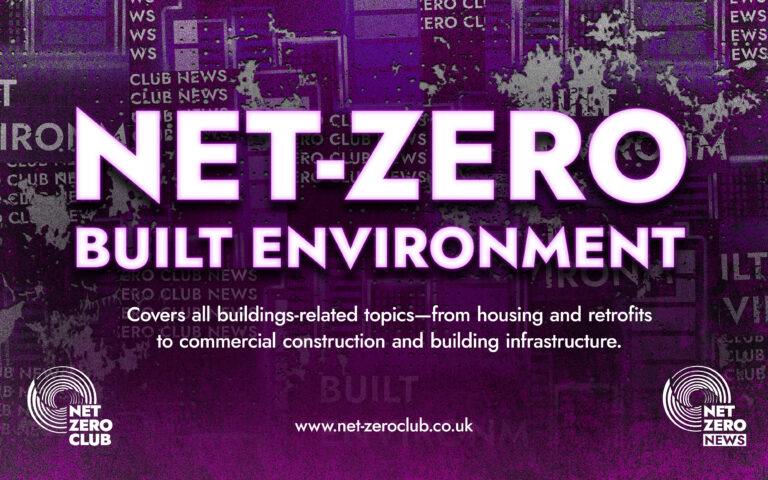Albania’s Hidden Gem Status Fades: What You Need to Know

Welcome, Net Zero News readers,
In recent years, Albania has transformed from a hidden gem into a bustling tourist hotspot, largely ignited by the power of social media. However, this rapid rise in popularity has brought with it a wave of challenges that threaten the very essence of what made this Balkan nation so alluring in the first place.
Located just three and a half hours south of Tirana, Albania’s capital, lies Jalë, a picturesque 300-metre beach famed for its crystal-clear water and pebbly sand. A decade ago, this idyllic spot served as a sanctuary for local campers who enjoyed the beach for free. Fast forward to today, and it has become a sought-after destination for holidaymakers willing to pay €10 for a sunbed, provided they can navigate the dirt roads and find parking amidst an increasing number of visitors.
The transformation of Jalë from a tranquil retreat to a burgeoning tourist hub is emblematic of the broader shift within Albania itself. Once a largely undiscovered paradise, the nation is now grappling with the repercussions of its newfound fame — including rising prices, environmental degradation, and concerns over infrastructure.
A Promising Star
The surge in Albania’s tourism can be traced back to July 2020 when the government reopened its borders, welcoming visitors amid the ongoing Covid pandemic. The result was a remarkable influx of tourists, with over 5.6 million travelling to Albania in 2021 — a staggering 114 percent increase compared to the previous year.
What initially attracted visitors was Albania’s affordability, especially as other European destinations like Italy, Spain, and Portugal became increasingly expensive. In 2020, one could secure a night in a beachfront hotel with breakfast for as little as €30, while sunbed rentals began at just €3. This combination of natural beauty and cost-effectiveness proved irresistible, especially as social media began showcasing the country’s stunning landscapes.
By 2024, Albania had garnered over 3.8 million posts on Instagram, accumulating more than 106 billion views. This viral sensation placed it in competition with established tourist giants like Italy and Greece, resulting in a flood of visitors that overwhelmed the country’s infrastructure.
The numbers tell a compelling story. In 2023, Albania welcomed a record 10 million tourists — a 35 percent increase from the previous year. This growth did not stop there; in 2024, the number surged to 11.7 million, with the government projecting over 15 million tourists by the end of this year, all in a nation with a population of just 2.7 million.
Tourism has become a lifeline for Albania, contributing approximately 8 percent to the nation’s gross domestic product and creating tens of thousands of jobs in a country that has long been one of the poorest in Europe. The majority of visitors hail from European nations, with Germans, Italians, Poles, and French tourists leading the charge.
Unlike larger countries, Albania’s compact geography allows visitors to experience both mountains and beaches within a single day, making it an appealing choice for those seeking adventure. As Denada Jushi, an Albanian journalist, aptly puts it, the country is perceived as “wild and free and something that you don’t have in Europe.”
Construction Bonanza
In an effort to elevate Albania’s status as a prime tourist destination, the government has implemented tax incentives for international hotel chains. Under a policy introduced in 2019, these companies are exempt from corporate income tax for a decade if they construct four-star or five-star hotels. This initiative, recently extended to 2027, aims to attract significant investment in the hospitality sector.
“These are major investments,” remarked Blendi Klosi, a member of parliament who championed the extension of this tax break. “This initiative benefits only a specific segment of the sector—those aiming to raise the industry to higher standards.”
The strategy appears to be paying off, with major hotel brands such as Marriott International, Meliá Hotels International, and Radisson Hotel Group establishing a presence in the region. Additionally, Jared Kushner, former U.S. President Donald Trump’s son-in-law, has plans to transform an Albanian island into a luxury retreat.
However, the rapid expansion raises significant concerns. Critics argue that the existing beaches lack the capacity to accommodate the influx of visitors that these luxury resorts will attract. Environmental degradation is becoming a pressing issue, with alarming reports of damage to natural habitats.
The impending opening of Vlora Airport in southern Albania has sparked controversy due to its proximity to protected areas. At the same time, diverting water from inland sources to meet the demands of coastal resorts has ignited protests among local communities and environmental activists alike.
“Greed has replaced sensible planning — and, for that matter, love of the land, nature, and the homeland,” stated Alfred Lela, a spokesperson for the opposition Democratic Party.
Too Big, Too Fast
While adventurous souls can still find less developed areas of Albania to explore, the days of budget-friendly holidays are rapidly fading. The average spend per visitor increased by 20 percent year-on-year in 2024, with tourists contributing €5 billion to the Albanian economy. Experts warn that rising demand puts immense pressure on supply chains, leading to increased costs for imported goods.
As costs continue to rise, locals who once frequented the beaches and natural attractions are increasingly being pushed out of the market. However, it’s not just the financial implications that are causing concern.
“Trash is becoming a big, big problem everywhere. None of the municipalities are able to keep up or manage recycling,” lamented Arben Kola, a local tour guide and environmentalist. Numerous social media posts from visitors highlight the issue, with complaints about litter along roadsides and shorelines, as well as frustrations over rampant construction and soaring prices.
Albania, once characterised by its natural beauty and youthful spirit, is increasingly being compared to luxury destinations like Monaco. “It’s like Monaco now. There’s no space for locals,” Jushi remarked, underscoring the disconnect between the surge in tourism and the needs of local communities.
As the country grapples with the challenges of its newfound popularity, the question remains: can Albania balance the demands of tourism with the preservation of its unique natural and cultural heritage? The answer will determine the future of this once-hidden gem and the livelihoods of those who call it home.
Stay tuned as we continue to monitor the developments in Albania and other regions striving for sustainability amid the pressures of tourism.

 Got net-zero news, project updates, or product launches to share?
Got net-zero news, project updates, or product launches to share? 

